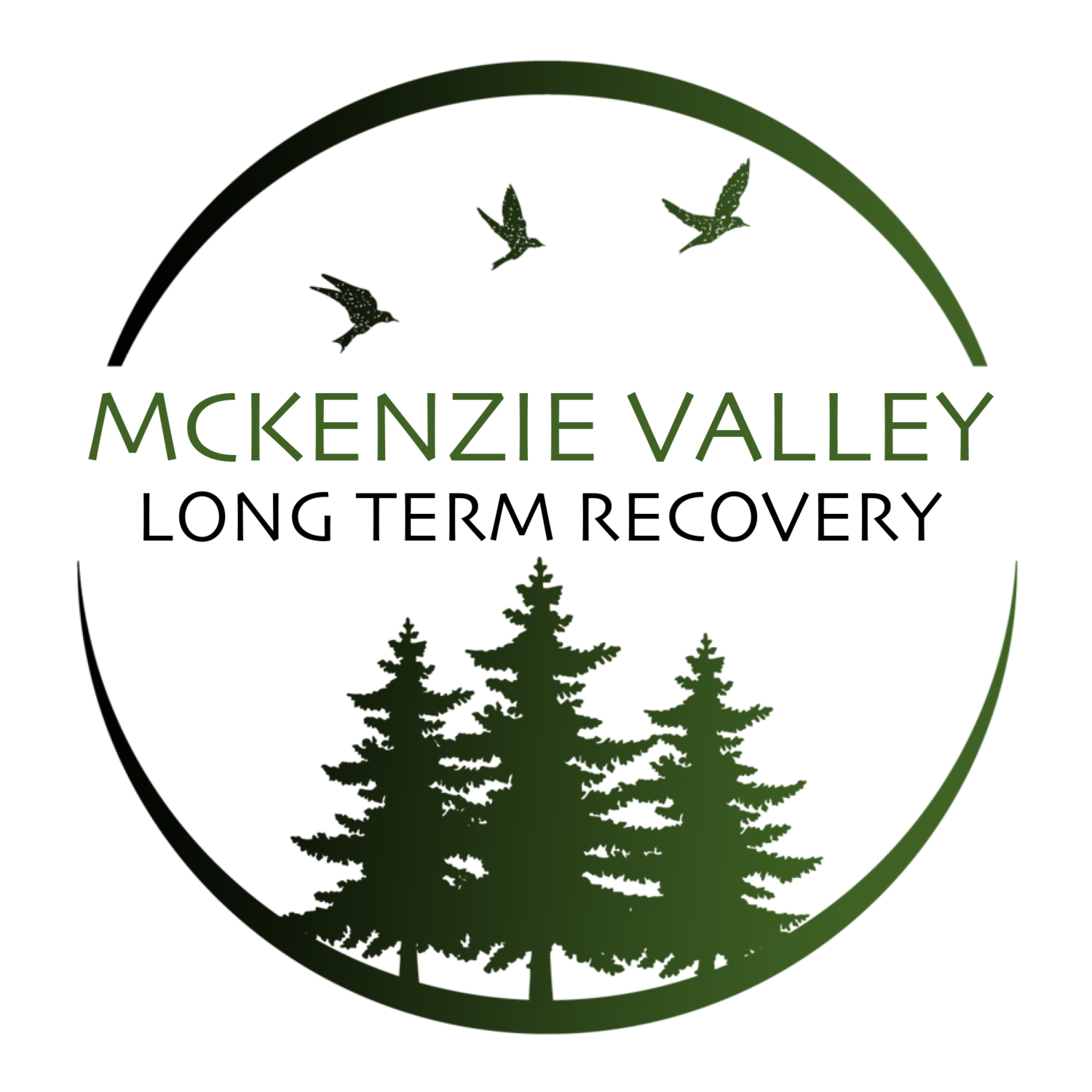What are Unmet Needs?
Every resident of the McKenzie Valley lost something in the Holiday Farm Fire, whether it be a home or peace of mind. If your home was damaged or lost, you may not have what you need to recover completely. Some people were uninsured and most people who had insurance found that their insurance wasn’t sufficient to pay for all of the costs to rebuild, replace, or repair. The gap between your insurance, FEMA funds, Loans, and other aid is your UNMET need.
WE MAY BE ABLE TO HELP YOU CLOSE THAT GAP!

Frequently Asked Questions
What is considered an Unmet Need?
The McKenzie Valley Long Term Recovery Group wants to help you get back into a safe, sanitary, and secure home. If you do not have the funds, materials, or labor to complete your home rebuild, we may be able to help. Here are three examples:
One individual got their manufactured home delivered but needed steps to get in and out of it safely. But, they had spent all of their insurance proceeds to buy the house and get it hooked up to services. The donors at the table pooled their resources and paid a contractor to build the steps making their home SAFER.
Another family needed new mattresses. They spent their insurance and SBA loan proceeds to rebuild their house. They searched secondhand stores for furnishings but wanted new mattresses for each family member. We purchased their mattresses and delivery them to their home, making their home more SANITARY.
Donors paid to have a concrete slab poured so a family could begin rebuilding their home. Having a forever home will enable this family to feel SECURE with hope for their future in the McKenzie Valley.
What is the Unmet Needs Roundtable?
The McKenzie Valley Long Term Recovery Group coordinates a “Roundtable” of donors who help fund requests. Their funds come from a variety of sources such as donations from individuals, businesses, and foundations. Some examples of donors include United Way of Lane County, the grassroots organization Locals Helping Locals, Rotary District 5110, Lutheran Disaster Services, and others. The partners at the Roundtable have awarded over $700,000 in aid and counting!
Who can apply?
Anyone whose primary residence was affected by the Holiday Farm Fire, regardless of income, may be qualified for assistance. You may qualify even if you moved away from the McKenzie Valley or chose to rebuild right where you were.
Is this anonymous?
YES! The donors at the Unmet Need Roundtable will not know your identity and your information will remain confidential. Your Disaster Case Manager/Recovery Navigator will advocate on your behalf so you will not meet with the donors.
Is this a sure thing?
Unfortunately, no. There are no guarantees. There are limits to the amount of money each funder can award, and the request must fall within their mission. That said, over 130 requests have been fulfilled, and a total of $700,000 and counting has been awarded. Few have been denied.
How do I apply?
All of the requests to the Roundtable MUST be submitted by your Disaster Case Manager/Recovery Navigator. If you are not participating in the Disaster Case Management Program (DCMP), please contact info@mckenzievalleyltrg.org to get connected.
So, is this worth my time?
YES! Even if the Unmet Need Roundtable is unable to fund your entire request, or even a portion of your request, you will be linked to other relevant programs for which you may qualify.
More Examples of Unmet Needs
Weatherization
Holiday Farm Fire survivors who are currently living in recreational vehicles (RVs) or trailers in the McKenzie River Valley are eligible for winter weatherization help.
Examples of weatherization help include installing skirting, insulation of pipes, adding heated water hoses, and more.
To be eligible, survivors must have a valid RV or temporary structure permit for the RV or trailer they are staying in.
Funding for the weatherization was provided by a grant from the Oregon Community Credit Union Foundation.

